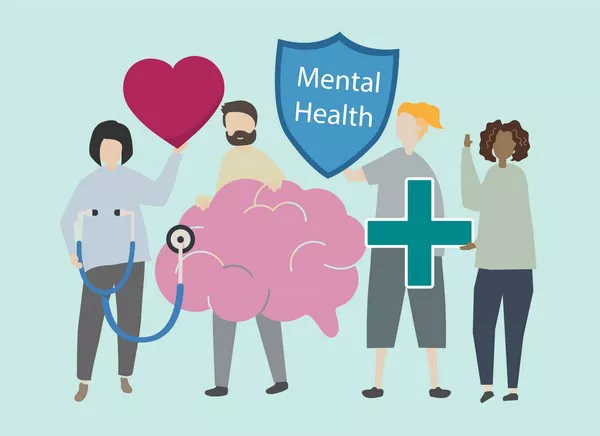Before delving into specific colleges, it’s essential to understand the challenges that students with depression may face in a college environment. The transition to college can be overwhelming, with new academic and social pressures often exacerbating existing mental health issues. Additionally, the stigma surrounding mental illness can make it difficult for students to seek help or openly discuss their struggles. Without adequate support, students with depression may find it challenging to succeed academically and maintain their overall well-being.
Recognizing the importance of mental health support, colleges and universities across the country are implementing various programs and initiatives aimed at addressing the needs of students with depression. From counseling services to peer support groups, these institutions are prioritizing the mental health and well-being of their students. Below are some of the best colleges for students with depression, based on their commitment to providing comprehensive mental health support.
1. University of Michigan – Ann Arbor:
The University of Michigan is renowned for its robust mental health services and programs. The Counseling and Psychological Services (CAPS) at U-M offers individual counseling, group therapy, psychiatric services, and crisis intervention to students free of charge. Additionally, the university has implemented the Embedded Counseling Program, which places mental health professionals within various schools and colleges to provide accessible support to students. Through initiatives like the “Depression on College Campuses” program, U-M fosters a supportive and inclusive environment for students struggling with depression.
2. Cornell University:
Cornell University is committed to promoting mental health awareness and providing resources for students with depression. The university’s Counseling and Psychological Services (CAPS) offers confidential counseling services, workshops, and support groups tailored to students’ needs. Cornell also prioritizes early intervention and prevention through initiatives like the Let’s Talk program, which provides drop-in consultations at various campus locations. Additionally, Cornell’s comprehensive mental health framework emphasizes collaboration between students, faculty, and staff to create a campus culture that values mental health and well-being.
3. Stanford University:
Stanford University recognizes the importance of holistic well-being and offers extensive support services for students with depression. The Counseling and Psychological Services (CAPS) at Stanford provides individual counseling, group therapy, and psychiatric services to students free of charge. The university also offers innovative programs such as the Resilience Project, which aims to build students’ emotional resilience and coping skills. Stanford’s commitment to mental health extends beyond clinical services, with initiatives like the Mind Over Body program promoting mindfulness and self-care practices among students.
4. Massachusetts Institute of Technology (MIT):
MIT is dedicated to supporting the mental health and well-being of its students through comprehensive programs and resources. The MIT Mental Health and Counseling Service offers individual therapy, group counseling, and medication management services to students. Additionally, MIT’s MindHandHeart initiative focuses on creating a caring and supportive campus community through events, workshops, and peer-led initiatives. The institute also provides resources specifically tailored to graduate students, recognizing the unique challenges they may face in navigating mental health issues.
5. University of California, Berkeley:
The University of California, Berkeley, is committed to fostering a culture of well-being and resilience among its students. The university’s Counseling and Psychological Services (CAPS) offers a wide range of mental health services, including individual counseling, group therapy, and crisis intervention. Berkeley also prioritizes student-led initiatives, such as the Mental Health Peer Educators program, which trains students to provide support and resources to their peers. Additionally, Berkeley offers online resources and workshops to promote mental health awareness and self-care practices among students.
Conclusion:
Choosing the right college can significantly impact a student’s academic success and overall well-being, particularly for those struggling with depression. Fortunately, many colleges and universities are prioritizing mental health support and implementing initiatives to better serve students with depression. From comprehensive counseling services to innovative prevention programs, these institutions are creating supportive environments where students can thrive academically and personally. By prioritizing mental health and well-being, colleges can ensure that all students have the resources and support they need to succeed in college and beyond.
FAQs
Q1. Which college has the happiest students?
Determining the college with the happiest students is subjective and varies based on individual experiences. However, colleges often ranked highly for student satisfaction include Pomona College, Claremont McKenna College, and Vanderbilt University, among others. Factors contributing to happiness may include campus culture, support services, and academic environment.
Q2. What school has the best mental health program?
Identifying the school with the best mental health program is challenging due to varying methodologies and criteria. However, universities like Stanford University, University of Michigan, and University of California, Berkeley, are known for their comprehensive mental health services, including counseling, therapy, and outreach programs, prioritizing student well-being.
Q3. Which country is best for psychiatry?
The “best” country for psychiatry depends on various factors such as quality of education, research opportunities, and healthcare infrastructure. Countries like the United States, United Kingdom, Canada, Australia, and Germany are often regarded highly for their advancements in psychiatric care, training programs, and research initiatives, offering diverse opportunities for psychiatrists to thrive.
Related topics:
- The Best Practices for Mental Health
- Can Someone Be Sad For No Reason
- How To Improve Mental Health As A Student


